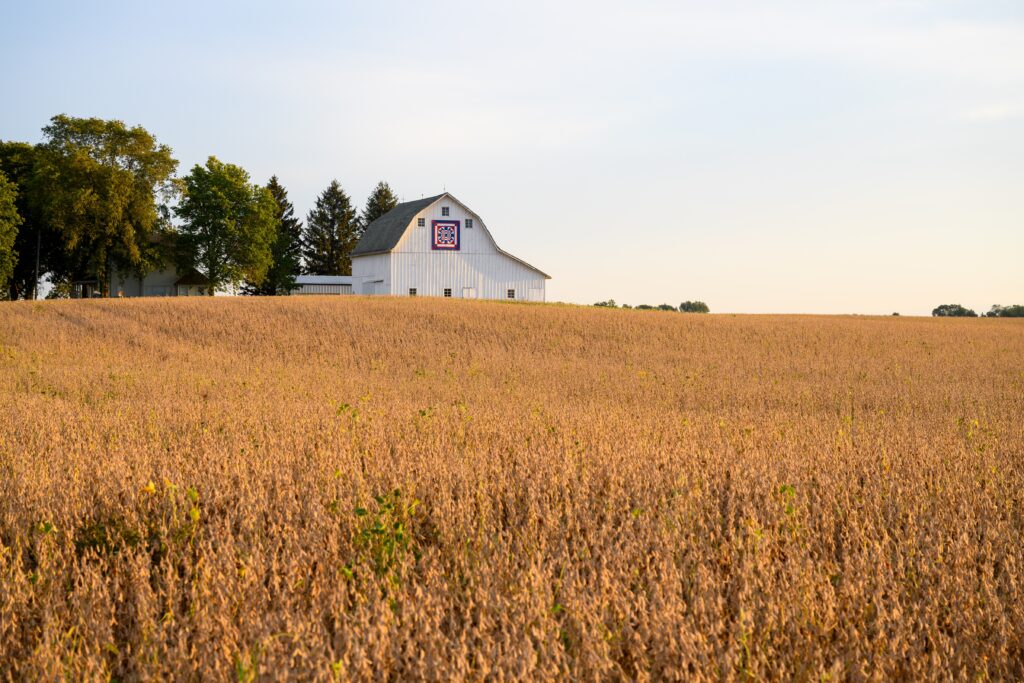
Sustainability takes many forms. For U.S. soybean farmers, sustainability goes well beyond the expert sustainable farming practices they implement every day. U.S. Soy’s newly released report on the social sustainability practices of U.S. soybean growers takes a broader look at the subject.
From volunteer activities to family involvement to on-farm recycling practices, the report provides insight to the multifaceted sustainability efforts and community engagement of soybean farmers in their operations and personal lives.

“We care about our community because we are not going anywhere. It’s hard to bring land with you if you move,” said one survey responder.
“Knowing your food comes from a multi-generation farm should give some peace of mind to consumers since it's being done by the same family in the same area for so long,” said another.
The survey results are based on responses collected from 755 soybean farmers nationwide in 2023. Key categories and results include:
Generational Farming Trends
- 94% of soybean farmers come from multi-generational farming families, with an average of four family members currently living on the farmed land.
Family Involvement
- Three-quarters of operations involve multiple family members, with two to three members actively participating in farm operations.
Benefits of Multi-generational Farming
- U.S. soybean farmers know that multi-generational farming provides benefits such as consistency, food security, local leadership, soil and water conservation, and environmental stewardship.
Confidence in Natural Resources
- Most farmers express a high level of confidence in the quality, safety, and sustainability of the natural resources on their farmland.
Impact of Living on Farmland
- Farmers believe that living on the land they farm enhances their care for the land and the safety and quality of resources. They are more aware of what is happening on the land and are committed to leaving it in better shape for future generations.

Commitment to Sustainability
- A majority of farmers strive to produce soybean crops in the most sustainable and environmentally friendly manner possible, making improvements every growing season.
Community Involvement
- A significant percentage of soybean farmers volunteer in various community activities, including religious volunteerism, agricultural roles, and support of youth and local schools.

Donations
- Many soybean farmers financially contribute to charitable causes, with donations totaling millions of dollars annually.
Recycling and Reuse
- Most farmers practice on-farm reuse and recycling practices, including recycling everyday agricultural materials, properly disposing of tires and non-recyclable trash, and using reusable containers.
For customers of U.S. Soy, learning about multi-generational family farms and the
commitment of U.S. soybean farmers to social sustainability are important factors in
differentiating U.S. Soy from soy of other origins. The social sustainability survey is an
informative tool that helps capture the deep-rooted connection of U.S. soybean farmers to
their land, communities, and future generations. Read more about the survey here.
This story was partially funded by U.S. Soy farmers, their checkoff and the soy value chain.
###